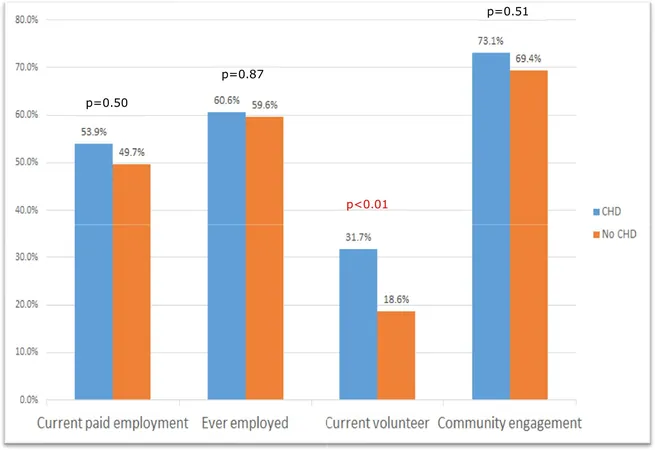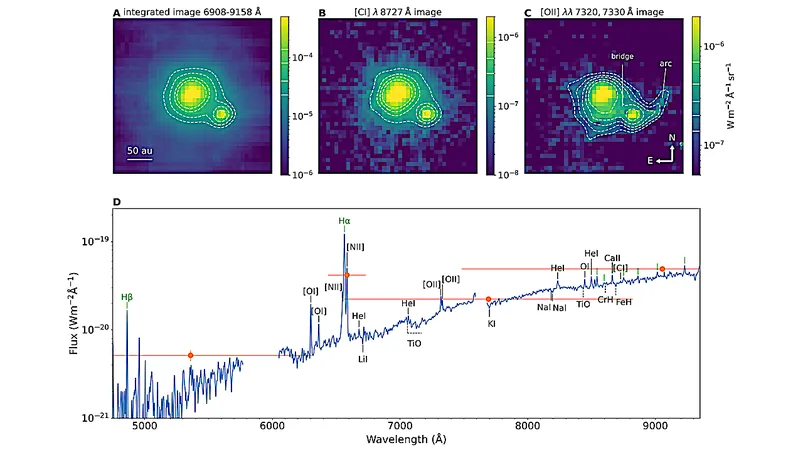
Inspiring Study Reveals Life Quality for Adults with Down Syndrome and Heart Defects
2025-09-19
Author: Wei Ling
Groundbreaking Findings Illuminate Resilience of Adults with Dual Diagnoses
A groundbreaking study from MUSC has unveiled that adults aged 18 to 45 battling both Down syndrome and congenital heart defects (CHD) are demonstrating astonishing resilience against significant medical challenges. Published in Pediatric Cardiology, the research shows these individuals enjoy similar work, volunteerism, and overall quality of life as those with Down syndrome alone.
A Closer Look at Down Syndrome and CHD
Down syndrome arises from an extra copy of chromosome 21, impacting development and leading to intellectual disabilities. Conversely, congenital heart disease is more than a mere complication for nearly half of those with Down syndrome, presenting formidable health issues right from birth.
Parents' Concerns Addressed
Parents often grapple with heavy concerns: "Will my child grow up to lead a normal, fulfilling life?" Dr. Stephanie Gaydos, the lead researcher, understands these worries and designed her study to explore whether adults with both diagnoses faced more severe life challenges compared to their peers.
Engaging and Empowering Through Research
Involving 287 adults with Down syndrome—104 of whom also had CHD—participants completed a detailed online questionnaire covering various aspects of their lives, including medical history, employment status, quality of life, mental health, and caregiver burdens.
Positive Outcomes for Families
The findings were nothing short of uplifting. Dr. Gaydos noted, "We found no significant differences in community engagement or quality of life for adults with dual diagnoses compared to those with only Down syndrome. This is fantastic news!"
Challenging Long-Standing Assumptions
Statistically, adults with Down syndrome and CHD demonstrated nearly identical employment rates to their peers—61% against 60%. Volunteerism rates, however, were even more compelling: 32% of participants with both conditions actively volunteered, compared to just 19% among those with only Down syndrome.
Paving the Way for Future Research
This study is just a stepping stone for further exploration into how these conditions impact individuals' lives. Dr. Gaydos and Dr. Atz aim to build upon this research to better inform medical care and support systems.
A Beacon of Hope for Families
Dr. Gaydos concludes, "This discovery holds immense promise for patients and families alike. Having both a congenital heart defect and Down syndrome doesn’t seal the fate for a less productive life. It’s an optimistic outlook for many who are born with such challenges!"

 Brasil (PT)
Brasil (PT)
 Canada (EN)
Canada (EN)
 Chile (ES)
Chile (ES)
 Česko (CS)
Česko (CS)
 대한민국 (KO)
대한민국 (KO)
 España (ES)
España (ES)
 France (FR)
France (FR)
 Hong Kong (EN)
Hong Kong (EN)
 Italia (IT)
Italia (IT)
 日本 (JA)
日本 (JA)
 Magyarország (HU)
Magyarország (HU)
 Norge (NO)
Norge (NO)
 Polska (PL)
Polska (PL)
 Schweiz (DE)
Schweiz (DE)
 Singapore (EN)
Singapore (EN)
 Sverige (SV)
Sverige (SV)
 Suomi (FI)
Suomi (FI)
 Türkiye (TR)
Türkiye (TR)
 الإمارات العربية المتحدة (AR)
الإمارات العربية المتحدة (AR)